Boz Scaggs - Detour 2025
Исполнитель: Boz Scaggs Альбом: Detour Жанр: Jazz, Soul Год: 2025 Страна: USA (Plano, Texas) Лейбл: Concord Records Формат: FLAC (tracks) Official DR value: DR8 Разрядность: 24bit / 88.2kHz Stereo Размер: 886 MB Инфо: bandcamp Залито на: XFile (3% восстановление) «Exclusive for Lossless-Galaxy» Sometimes in life, an unexpected detour leads you right where you belong. Boz Scaggs’ captivating new album is proof of that. “I had no intention of making a record when I started singing these songs,”
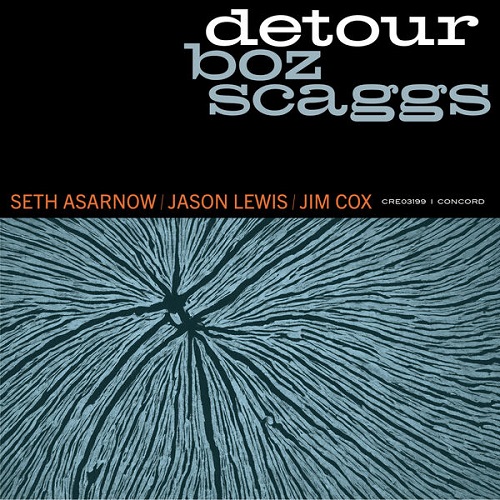
Boz Scaggs - Detour 2025
Исполнитель: Boz Scaggs Альбом: Detour Жанр: Jazz, Soul Год: 2025 Страна: USA (Plano, Texas) Лейбл: Concord Records Формат: FLAC (tracks) Official DR value: DR8 Разрядность: 24bit / 88.2kHz Stereo Размер: 886 MB Инфо: bandcamp Залито на: XFile (3% восстановление) «Exclusive for Lossless-Galaxy» Sometimes in life, an unexpected detour leads you right where you belong. Boz Scaggs’ captivating new album is proof of that. “I had no intention of making a record when I started singing these songs,”
19 10, 2025
Randy Newman - Trouble in Paradise (Remastered Expanded Edition) 2025
Исполнитель: Randy Newman Альбом: Trouble in Paradise (Remastered Expanded Edition) Жанр: Rock, Pop Rock Год: 2025 Страна: USA (Los Angeles, California) Лейбл: Rhino - Warner Records Формат: FLAC (tracks) Official DR value: DR13 Разрядность: 24bit / 192kHz Stereo (track 7 - 24bit / 96kHz) Размер: 3,77 GB Инфо: wiki Залито на: XFile (3% восстановление) «Exclusive for Lossless-Galaxy» "Trouble in Paradise" (Expanded Edition) features a newly remastered version of the original, a rare
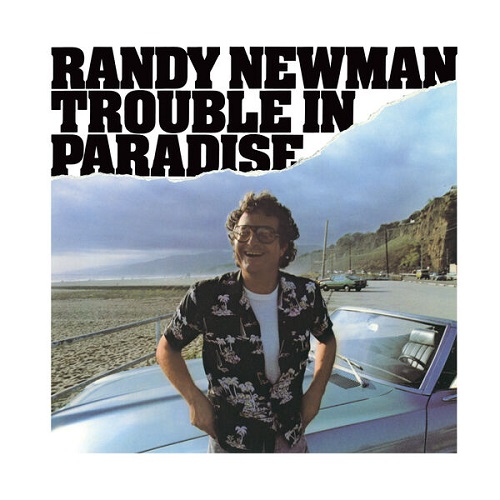
Randy Newman - Trouble in Paradise (Remastered Expanded Edition) 2025
Исполнитель: Randy Newman Альбом: Trouble in Paradise (Remastered Expanded Edition) Жанр: Rock, Pop Rock Год: 2025 Страна: USA (Los Angeles, California) Лейбл: Rhino - Warner Records Формат: FLAC (tracks) Official DR value: DR13 Разрядность: 24bit / 192kHz Stereo (track 7 - 24bit / 96kHz) Размер: 3,77 GB Инфо: wiki Залито на: XFile (3% восстановление) «Exclusive for Lossless-Galaxy» "Trouble in Paradise" (Expanded Edition) features a newly remastered version of the original, a rare
19 10, 2025
John Lees' Barclay James Harvest - Relativity 2025
Исполнитель: John Lees' Barclay James Harvest Альбом: Relativity Жанр: Progressive Rock Год: 2025 Страна: UK (Oldham) Лейбл: Esoteric - Antenna Формат: FLAC (tracks) Official DR value: DR10 Разрядность: 24bit / 48kHz Stereo Размер: 969 MB Инфо: wiki Залито на: XFile (3% восстановление) «Exclusive for Lossless-Galaxy» Several years in the making, the record is a 78-minute collection of songs loosely based upon the concept of human and cosmic interaction and relationships. Produced by the band

John Lees' Barclay James Harvest - Relativity 2025
Исполнитель: John Lees' Barclay James Harvest Альбом: Relativity Жанр: Progressive Rock Год: 2025 Страна: UK (Oldham) Лейбл: Esoteric - Antenna Формат: FLAC (tracks) Official DR value: DR10 Разрядность: 24bit / 48kHz Stereo Размер: 969 MB Инфо: wiki Залито на: XFile (3% восстановление) «Exclusive for Lossless-Galaxy» Several years in the making, the record is a 78-minute collection of songs loosely based upon the concept of human and cosmic interaction and relationships. Produced by the band
19 10, 2025
Жанры
Lossless Galaxy Release
Русская музыка
--Поп
--Рок
--Панк
--Альтернатива
--Металл
--Рэп, Хип-Хоп, R'n'B
--Джаз и Блюз
--Фолк
--Шансон, Авторская песня
--СССР
Зарубежная музыка
--Pop
--Rock
--Hard Rock
--Progressive & Art-Rock
--Pop-Rock & Soft Rock
--Instrumental Rock
--Heavy, Traditional, Industrial Metal
--Power, Gothic, Sympho Metal
--Thrash, Speed, Groove, Modern Metal
--Death, Melodic Death, Doom, Dark Metal
--Black, Pagan, Folk, Viking Metal
--Alternative
--Punk
--Disco, Eurodance
--Rap, Hip Hop, R'n'B
--Reggae, Ska, Dub
--Jazz, Blues, Soul
--Folk, Country, Ethnic
--Electronic, Ambient, New Wave
--House, Techno, Trance
Другие жанры
--New Age, Relax, Meditative & Flamenco
--Chillout, Lounge, Downtempo, Trip-Hop
--Drum & Bass, Jungle, Breakbeat, IDM
--Classical / Классическая музыка
--Soundtrack
--Музыкальные сказки
Vinyl Rip
HI-Res / DVD-Audio / DTS
--SACD
--DSD
--DVD-Audio
Сборники Lossless-Galaxy
Альбомы 2022
Альбомы 2023
Альбомы 2024
Теги
1st Press 2022 2023 2024 2025 70... AOR Black Metal Blues Blues Rock Bootleg Series Classic Rock Death Metal Discography Exclusive for Lossless-Galaxy Folk Rock Fusion Hard Rock Heavy Metal Hi-Res Japanese Edition Jazz Jazz Rock lossless Melodic Death Metal Melodic Rock Modern Electric Blues Pop Pop Rock Power Metal Prog Rock Progressive Metal Progressive Rock Psych Rock Psychedelic Rock Rock SACD Symphonic Metal Thrash Metal Дискографии от KoGGaN
Архивы
Опрос
В каком формате хотели бы видеть релизы на сайте ?
 Автор: LeddZepp, 2 августа 2022, Комментариев: 0, Просмотров: 1 491
Автор: LeddZepp, 2 августа 2022, Комментариев: 0, Просмотров: 1 491Camel - Camel [Vinyl Rip] (1973)
![Camel - Camel [Vinyl Rip] (1973)](/uploads/posts/2022-08/camel73camel_500_lp.jpg)
Year: 28 February 1973 (LP 1973)
Label: MCA Records (UK), MCL 1601, CPS 10131
Style: Art Rock, Symphonic Rock
Country: Guildford, Surrey, England
Time: 38:51
Format: Flac Tracks 16/44,1 kHz
Size: 258 Mb
Уже первый альбом группы оказался очень интересным в музыкальном плане. Группа показала все, на что была способна - мелодизм, интересные гармонические находки, техничное исполнение. Лишенные какой бы то ни было "тяжести", Camel с легкостью создавали специфическую "музыкальную грусть". Ее подчеркивали чистые голоса музыкантов, явно отработанные еще во время исполнения битловского материала. Печаль слышалась и в инструментальных фрагментах, которые, не смотря на свою быстроту, не выражали ни веселья, ни агрессии.
Вообще вокала в альбоме не очень много - Camel с самого начала тяготели к инструментальной музыке. Тексты не очень сложны, но и не банальны. Затрагиваются проблемы одиночества, расставания. В плане лирики выделяется только "Slow Yourself Down" - философское и слегка саркастичное наблюдение за человечеством: "Человек рожден без воли к жизни. . ."
На мой взгляд, арт-рок - это скорее не запоминающиеся мелодии, а умение создать нетривиальное настроение, отразить в музыке тончайшие нюансы душевных переживаний. В первом альбоме Camel это условие выполняется как нельзя хорошо. Непонятно каким образом, среди мягких меланхоличных композиций проступает чувство отчаяния в сочетании со смирением. Даже в завершающем альбом инструментале звучит своеобразный отчет о прожитой жизни - очень странное для двадцатилетних молодых людей настроение. Снова данное чувство всплывет только в альбоме "Stationary Traveler", но уже в совершенно другой ипостаси.
(r-island.chat.ru/Camel/Camel_Disc.htm)
01. A1 Slow Yourself Down (04:44)
02. A2 Mystic Queen (05:35)
03. A3 Six Ate (06:00)
04. A4 Separation (03:53)
05. B1 Never Let Go (06:22)
06. B2 Curiosity (05:51)
07. B3 Arubaluba (06:24)




При желании можно посмотреть все мои публикации на сайте. Приятного прослушивания. Жмём и смотрим (Click to see all of my posts)!
Внимание! У Вас нет прав для просмотра скрытого текста.
Изменил: LeddZepp по причине: Переоцифровал, Обновил ссылки и Описание.
Похожие новости:
Комментарии отсутствуют
Добавить комментарий!
Информация
Посетители, находящиеся в группе Гости, не могут оставлять комментарии к данной публикации.

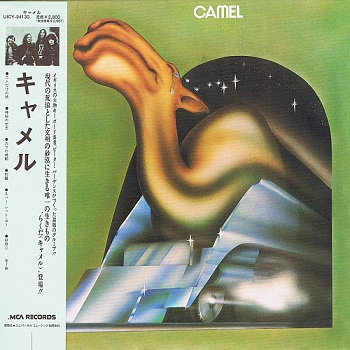
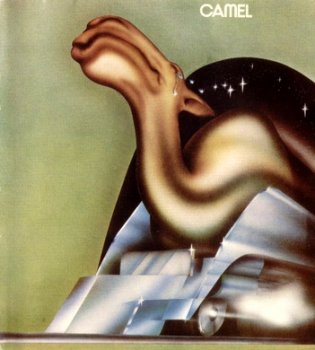
![Golden Earring - Moontan (1973) [Vinyl Rip]](/uploads/posts/2021-03/1617203594_goldenearring73moontan_500_lp.jpg)
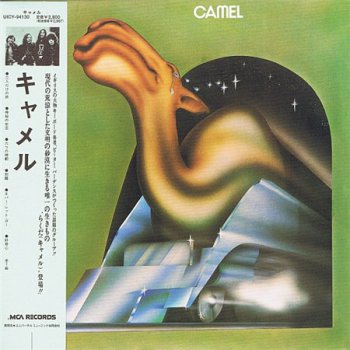
![Deep Purple - Who Do We Think We Are (1973) [Vinyl Rip] (1st Press)](/uploads/posts/2021-04/1617532806_deeppurple73whodowethink_500_lp.jpg)